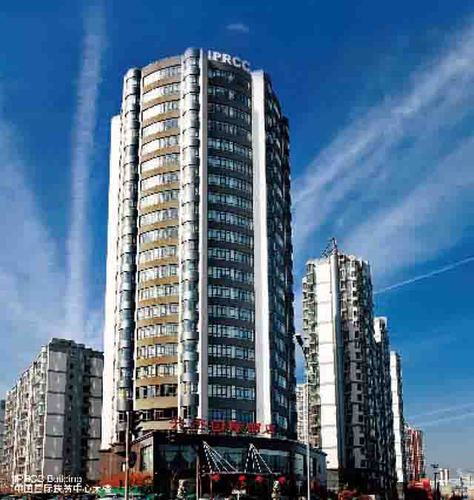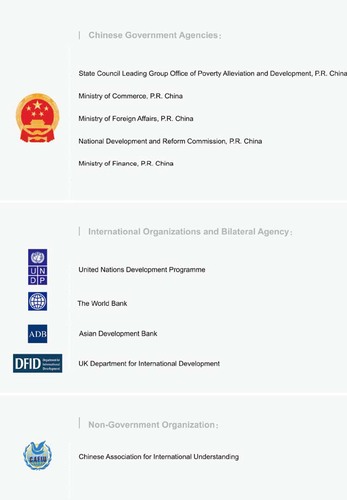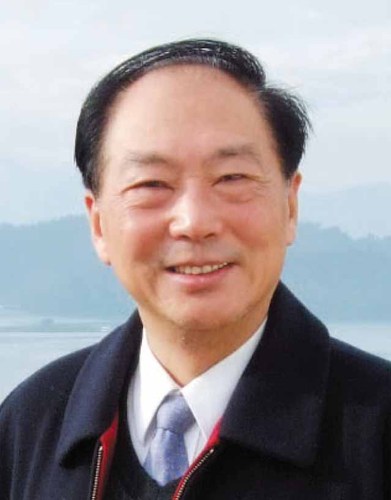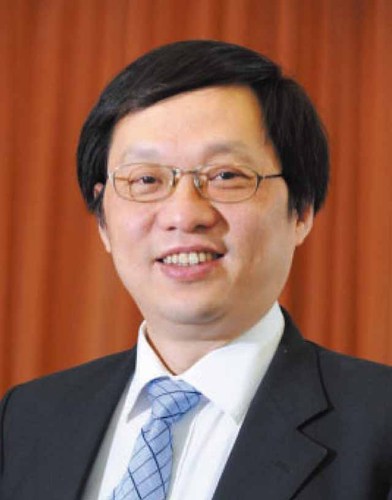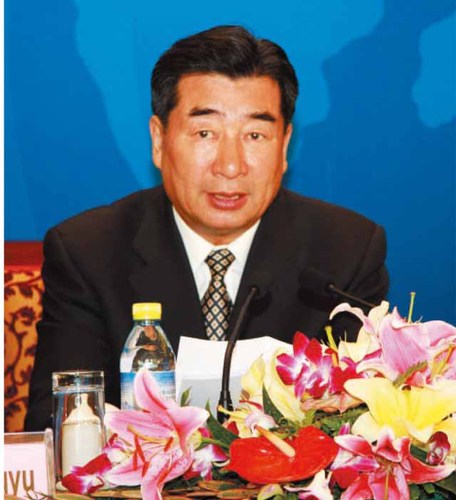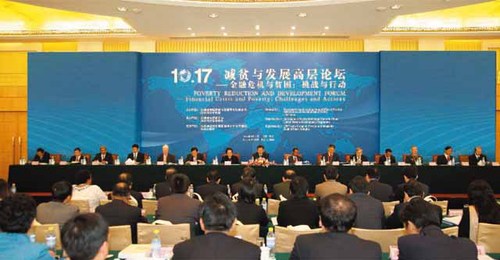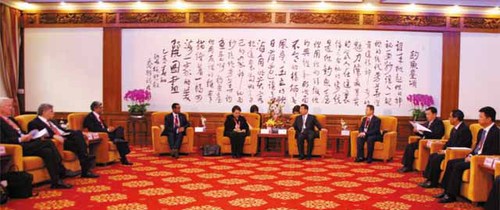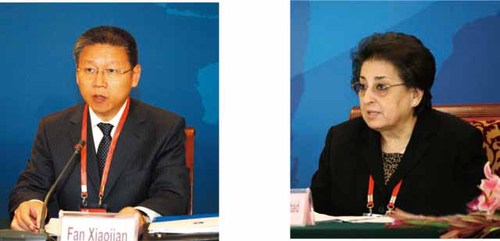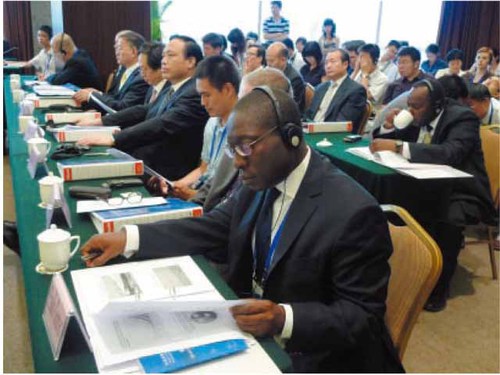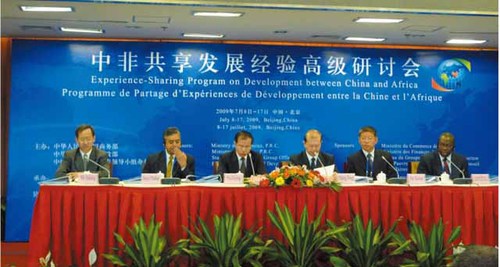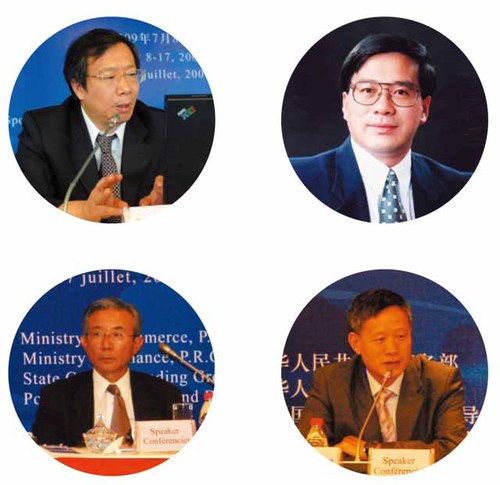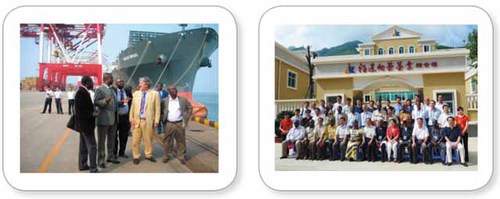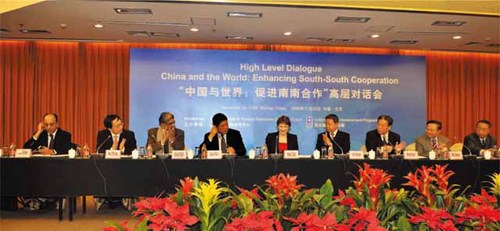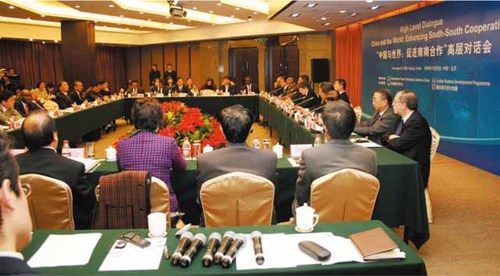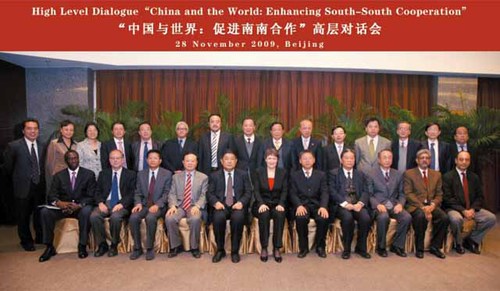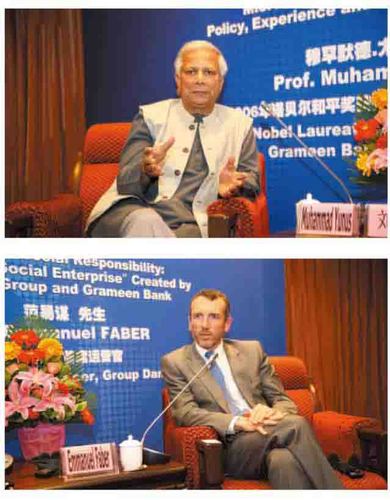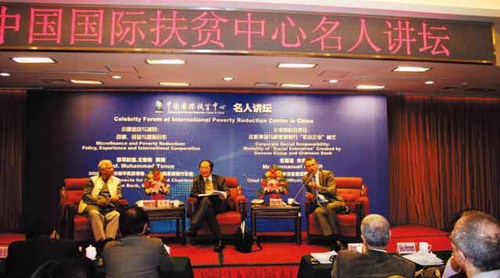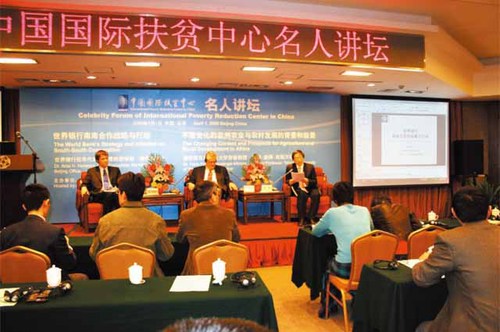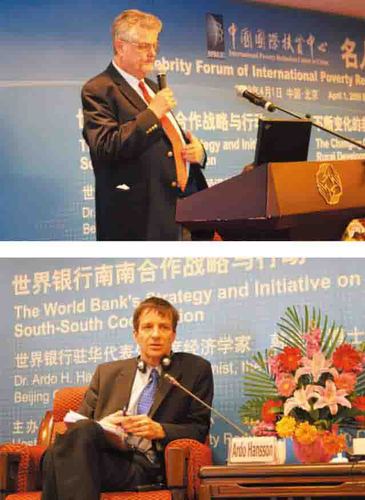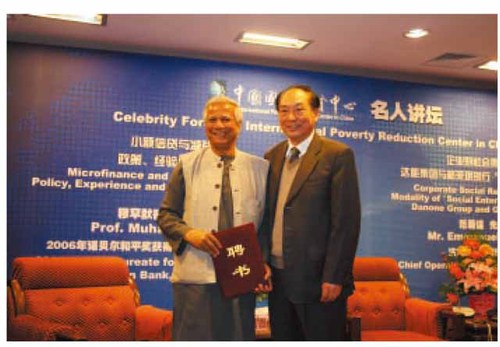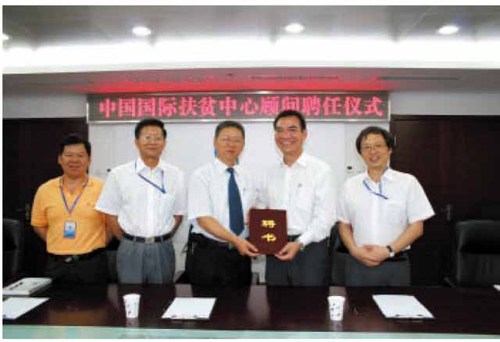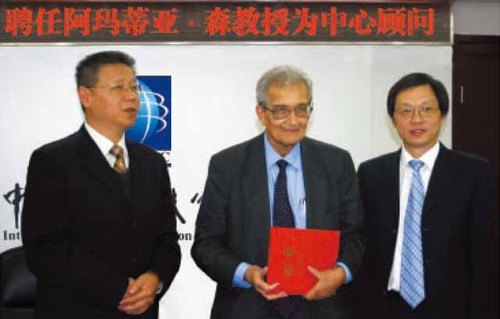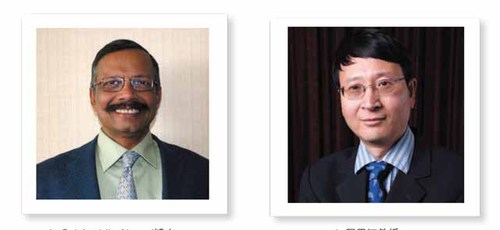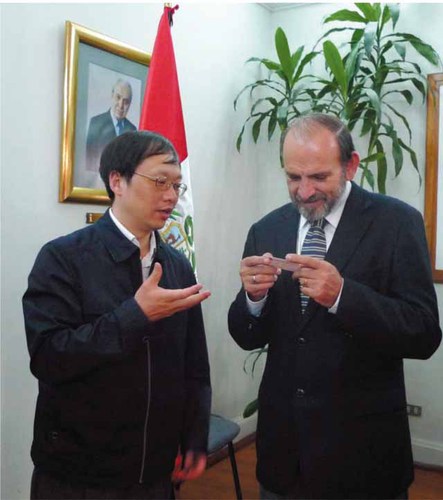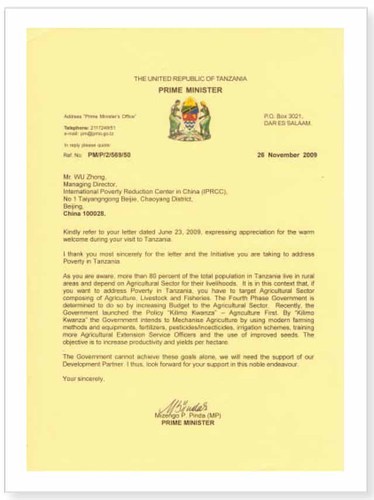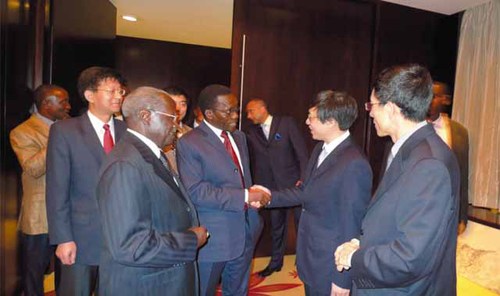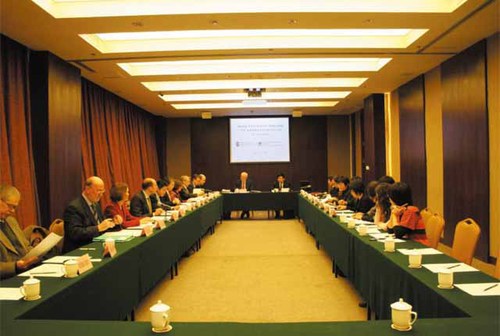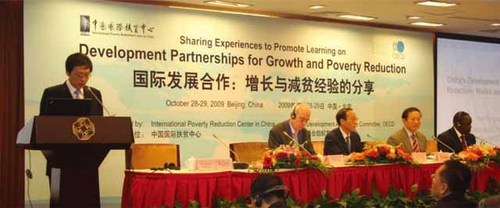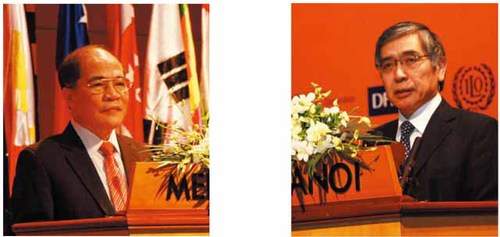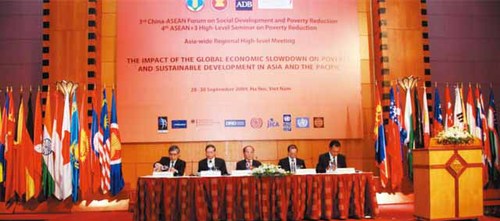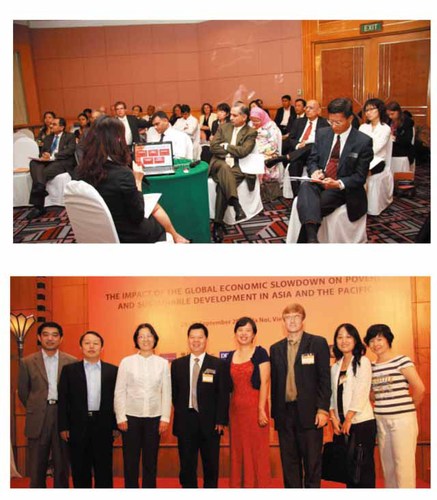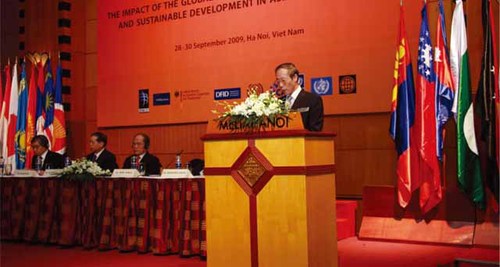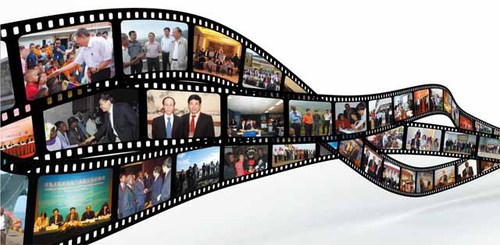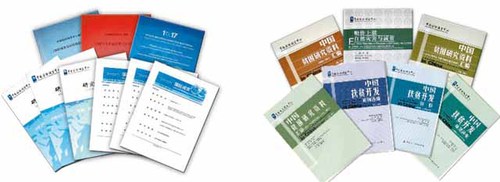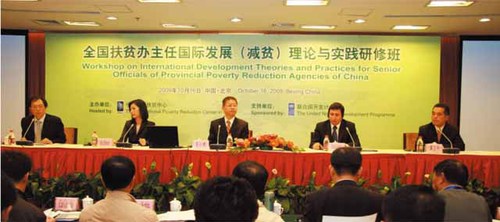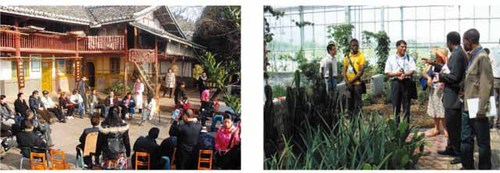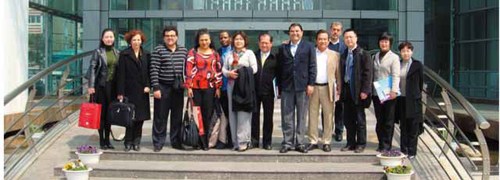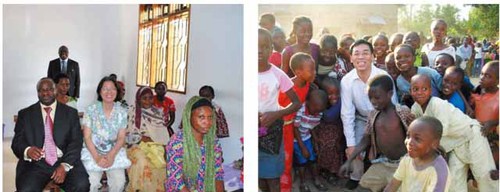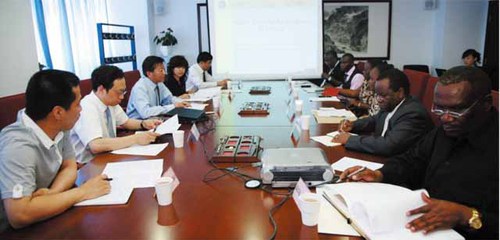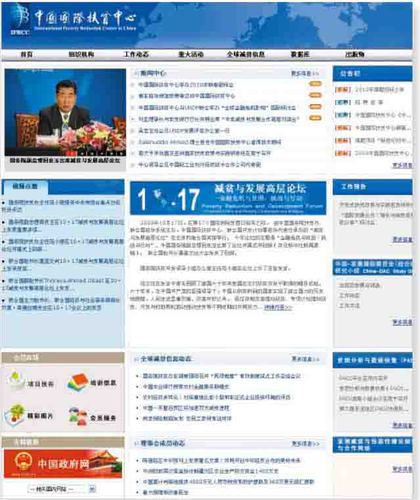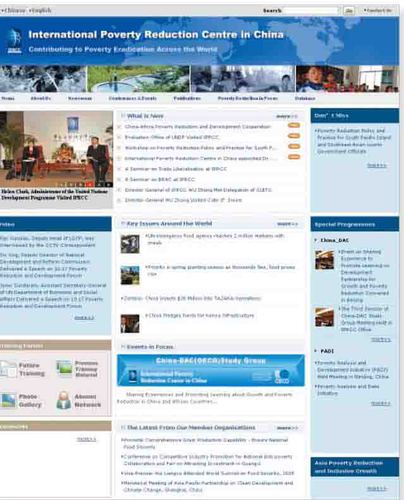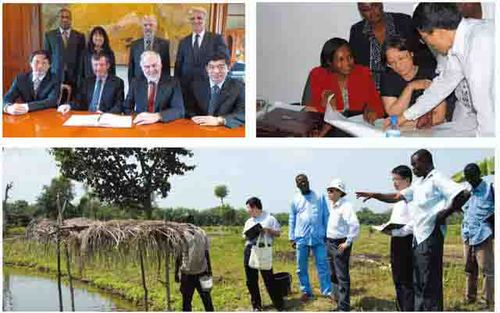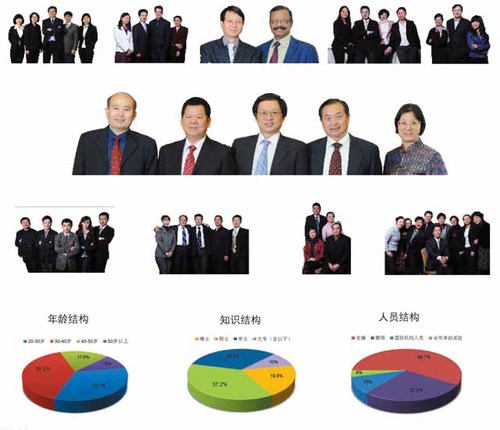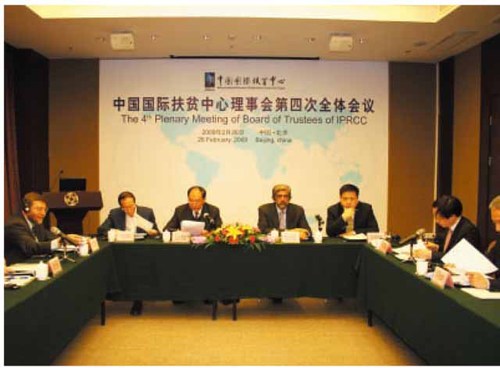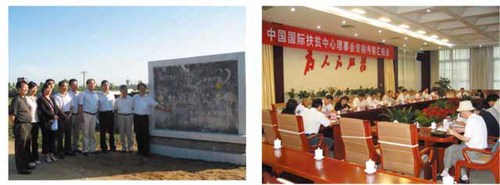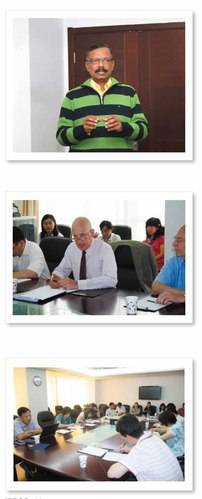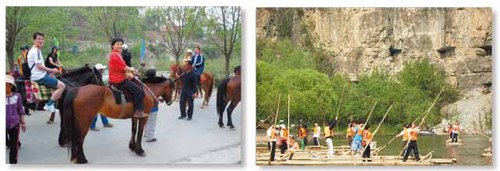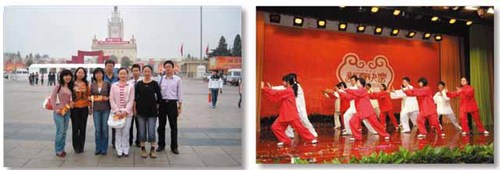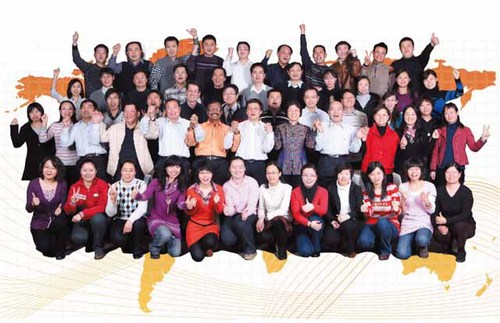Annual Report2009
About IPRCC
The International Poverty Reduction Center in China (IPRCC) was jointly established by the Chinese Government, United Nations Development Programme in December, 2004. IPRCC is an international poverty alleviation institution, affiliated to the State Council Leading Group Office of Poverty Alleviation and Development (LGOP). IPRCC is focused on poverty reduction research, training, exchanges and cooperation. It has become an international platform for promoting South-South Cooperation and facilitating partnerships with developed countries and international organizations. Chinese President Hu Jintao once said in the UN Assembly, “The establishment of IPRCC in Beijing has been established with the purpose of contributing to the eradication of global poverty .”
Since its inception, IPRCC has conducted a series of Activities.Research: IPRCC has completed an analysis of the poverty reduction policies and experiences in China, and a comparative study of the theories and practices of international poverty reduction and development. It has established extensive partnerships with higher educational institutions and research institutes at home and abroad, including Peking University (PKU), Chinese Academy of Social Sciences (CASS), and Overseas Development Institute of the U.K.Training: IPRCC has held dozens of poverty reduction training programmes for 515 middle - and high-level officials from 83 countries and has established a relatively sound international poverty reduction training system. IPRCC is also developing a postgraduate education programme on poverty reduction and development. Thus IPRCC has become an important international training centre specialized in poverty reduction.Exchange: IPRCC has established partnerships with developing and developed countries and many international organizations. The annual events of “10-17 Poverty Reduction and Development Forum” and “China-ASEAN Forum on Social Development and Poverty Reduction” have become the most active globally influencing Forums.Cooperation: IPRCC has established cooperative relationships with African, Asian and South American countries. For example, in Tanzania it has established a poverty reduction cooperation center with the purpose of providing policy consulting services, organizing training and implementing pilot programmes.
The Chinese Government has offered substantial support for the establishment and development of IPRCC, and made capital investments to construct the IPRCC Office Building for smooth functioning of the latter’s activities.
Messages
Chairman’s Message: I believe that under the leadership of LGOP and IPRCC Board of Trustees (BOT), the Center will keep forging ahead to live up to people’s expectations.
In the past year, the number of the poor increased by a hundred million; Financial crisis and climate change have caused an even more negative impact on the poor. It is under such a background of challenges and opportunities ahead, IPRCC stepped into a new dynamic level.
Chairman’s Message
In 2009, when the rich were worried about the shrinking of their wealth, the poor were weeping for their livelihood, confronted with bigger difficulties and more in need of help. With poverty alleviation as its purpose, IPRCC voiced the message in a timely manner. With considerable support of LGOP and various member institutions, the staff of IPRCC have put in relentless efforts and lived up to its poverty alleviation vision through constructive actions.
At the beginning of 2010, the five-year old IPRCC has established a solid foundation and is striving to build a “brand forum”, a “brand training programme” and a “brand institute”. I believe that under the leadership of LGOP and IPRCC BOT, and led by IPRCC Director General Dr. Wu Zhong, the Center will unite together and keep moving ahead to live up to people’s expectations.
Director General’s Message
In the past year, the number of the poor increased by a hundred million; Financial crisis and climate change have caused an even more negative impact on the poor. It is under such a background of challenges and opportunities ahead, IPRCC stepped into a new dynamic level. .The research studies done by IPRCC have kept up with the international trends. Training programmes have served 152 officials and scholars at various levels from 52 countries. The exchange activities have been more frequent, and partners are constantly increasing. The poverty reduction cooperation projects in the developing countries have been launched. In addition, IPRCC has witnessed faster development, higher level of international exchanges, and stronger institutional capacity. This is evidenced by the strong support and attention. IPRCC has earned from dignitaries and senior officials of Tanzania, Peru and UNDP. Highly experienced scholars and professionals with the background of working in international organizations are serving as IPRCC advisors. The web technology and service programmes have immensely improved. Such achievements should be credited to the strong leadership of LGOP, meaningful guidance of the Board, and substantial support of related state ministries and institutions. I would like to take this opportunity to extend our heartfelt thanks to all of you, and earnestly expect your continuous commitment and support.
Highlights
High-level forum ;Ministerial discussion;High-end dialogue;Celebrity forum;Well-known advisors;Support and attention from heads of state;Partnership with OECD;Organizing events abroad.
I. High-level Forum
The “10-17 Poverty Reduction and Development Forum” was held to mark the International Day for the Eradication of Poverty
The “Poverty Reduction and Development Forum” was held at Diaoyutai State Guesthouse in Beijing on October 17, 2009 to mark the 17th International Day for the Eradication of Poverty. Themed on “Financial Crisis and Poverty: Challenges and Actions”, the forum was hosted by LGOP and the UN resident agencies in China, and organized by IPRCC and UNDP representative office in China. Hui Liangyu, Chinese Vice Premier and Head of the State Council Leading Group of Poverty Alleviation and Development, attended the opening ceremony and delivered a speech.
Opening Ceremony of the 10-17 Poverty Reduction and Development Forum
Vice Premier Hui Liangyu meets with distinguished guests attending the forum.
About 200 Chinese and foreign guests, including government officials from over 20 countries, representatives of international organizations and NGOs, and scholars, attended the forum. Some eminent personalities included Thoraya Ahmed Obaid, UN Under-Secretary-General and Executive Director of the United Nations Population Fund (UNFPA), Ethiopian Finance Minster Ahmed Shide, and James Mirrlees, Cambridge professor and laureate for the Nobel Economics Prize in 1996.
Fan Xiaojian, Deputy Head of the State Council Leading Group of Poverty Alleviation and Development and Director of LGOP, makes a keynote speech at the forum
Thoraya Ahmed Obaid, UN Under-Secretary-General and Executive Director of UNFPA, addresses the opening ceremony
The forum participants jointly analyzed the impact of the international financial crisis on global poverty reduction and development. They discussed the countermeasures, and called on the international community to continue to strengthen the coordination of macro-economic policies, deepen the international financial cooperation, and improve the social security and relief policy systems in an effort to create favorable conditions for economic recovery and make further efforts to promote global poverty reduction and achieve the Millennium Development Goals (MDGs).
II. Ministerial Discussions
The sharing of experiences in poverty reduction and development between Chinese ministers and their African counterparts
Hosted by the Ministry of Commerce (MOFCOM), Ministry of Finance (MOF), and LGOP, and organized by IPRCC, the 2nd Experience-Sharing Programme on Development between China and Africa was held in Beijing from July 8-17, 2009. More than 100 people attended the programme, including ministerial-level officials from 21 central- and west-African countries, senior officials of related foreign embassies, international organizations and the Chinese Government, as well as well-known domestic and international experts and scholars. The programme further strengthened the mutual understanding and exchanges between China and Africa. During the workshop, all participants went on a field trip to Shandong and Fujian provinces. The World Bank provided support for the programme.
Participants of the Experience-Sharing Programme on Development between China and Africa
Fu Ziying, Vice Minister of MOFCOM, Zhang Tong, Assistant Minister of MOF, Fan Xiaojian, Director of LGOP, senior officials from the World Bank and senior representatives of African countries address the opening ceremony.
Several key participants also address the meeting and introduce China’s policies on Macro-economy, finance, rural development, and China-Africa cooperation. They are Yi Gang (upper left), Deputy Governor of the People’s Bank of China (PBC), Han Jun (upper right), Member of CPC Party Leadership Group and Director of the Research Department of Rural Economy of the Development Research Center of the State Council (DRC), Zhao Jianping (lower left), Assistant President of China Development Bank (CDB) and President of China-Africa Development Fund (CADFund), and Qiu Bohua (lower right), Ambassador in charge of the Forum on China-Africa Cooperation (FOCAC) from the Department of African Affairs of the Ministry of Foreign Affairs (MOFA).
Officials attending the programme pay a visit to the construction site of the Qingdao Harbor wharf.
Officials attending the programme visit Xiangrong Tea Company of Fujian province.
III. High-end Dialogue
High-level Dialogue “China and the World: Enhancing South-South Cooperation” was held with UNDP Administrator Ms. Helen Clark.
Co-chaired by Director General of IPRCC Wu Zhong and Resident Coordinator of UN China Khalid Malik, the high-level dialogue themed “China and the World: Enhancing South-South Cooperation” was convened on November 28, 2009. This event was considered one of the major activities during UNDP Administrator Ms. Helen Clark’s visit to China.
LGOP Director Fan Xiaojian meets with UNDP Administrator Ms. Helen Clark and other guests.
IPRCC Director General Wu Zhong welcomes the visiting UNDP Administrator Ms. Helen Clark.
The venue of the high-level dialogue themed “China and the World: Enhancing South-South Cooperation”.
Nearly 50 delegates attended the dialogue, including Quan Zhezhu, Vice Minister of the United Front Work of CPC Central Committee (UFW), Wang Maolin, President of China International Institute of Multinational Corporations (CIIMC), Wei Jianguo, Secretary General of China Center for International Economic Exchanges (CCIEE), Zhang Xinsheng, former Vice Minister of the Ministry of Education (MOE), Chi Jianxin, CEO of CADFund, and some foreign ambassadors to China and entrepreneurs.
Group photo of the delegates attending the high-level dialogue themed “China and the World: Enhancing South-South Cooperation”.
IV. Celebrity Forum
This is a new platform for exchanges to bring in cutting-edge theories and knowledge.
Professor Muhammad Yunus, a 2006 Nobel Peace Prize laureate and President of the Grameen Bank of Bangladesh, is invited to the Celebrity Forum and delivers a lecture themed “Microfinance and Poverty Reduction: Policy, Experience and International Cooperation”.
Fan Yimou, Chief Operating Officer of Danone Group, introduces “Corporate Social Responsibility: the ‘Social Enterprise’ Model of Danone and Grameen”.
BOT Chairman Liu Jian presides over the 1st session of the IPRCC Celebrity Forum on March 11.
IPRCC holds its 2nd session of the Celebrity Forum on April 1.
Dr. Hans P. Binswanger-Mkhize, a senior expert of the World Bank and Honorary Professor of Tshwane University of Technology (South Africa) is invited to deliver a speech themed “The Changing Context and Prospects for Agriculture and Rural Development in Africa”.
Dr. Ardo Hansson, Chief of the Economics Unit and lead economist for the World Bank China Office, delivers a lecture themed “The World Bank’s Strategies and Initiatives on South-South Cooperation”
V. Well-known Advisors
Appointing leading scholars and experts as advisors enhanced the credibility of IPRCC.
Professor Muhammad Yunus, a 2006 Nobel Peace Prize winner and President of the Grameen Bank of Bangladesh, was appointed Senior Advisor of IPRCC on March 11.
Mr. Justin Yifu Lin, Senior Vice President and Chief Economist of the World Bank, was appointed Senior Advisor of IPRCC on August 13.
Professor Amartya Sen, a 1998 Nobel Economics Prize winner and Professor of Economics and Philosophy of Harvard University, was appointed Senior Advisor of IPRCC on October 30.
IPRCC invited Dr. Salehuddin Ahmed, Pro-Vice Chancellor of BRAC University (Bangladesh) to serve as Chief Technical Advisor of IPRCC, and Dr. Cheng Enjiang, a senior research fellow with Victoria University (Australia), to serve as Chief Research Coordinator. The introduction of foreign experts and scholars to the Center has not only brought in foreign management philosophy and experience to the organization, but also enhanced the overall capacity and internationalization of IPRCC.
Dr. Salehuddin Ahmed, Ph.D in development economics, proficient in English and Russian, used to work for the world’s biggest NGO in the field of development – BRAC, Bangladesh, with a one-year teaching history in the SIT Graduate Institute and Marlboro College, Vermont, U.S. He served for 4 years as the Pro-Vice Chancellor of BRAC University in Bangladesh. He also has a 25-year first-hand experience in poverty reduction, management, training and development research in BRAC.
Professor Cheng Enjiang obtained his B.A. in Agro-economics at Nanjing Agricultural University in China and Ph.D in Development Economics at the University of Melbourne in Australia. He has published several papers on both SSIC and CSSIC academic journals under the anonymous referee system. He has accumulated substantial work experience in poverty alleviation and development in China, Mongolia, Indonesia, Columbia and North Korea, and used to serve as an international expert on poverty alleviation, rural finance, microfinance and development of micro-enterprises in a number of international institutions including the World Bank, Bank of Asia, UNDP, DFID, GTZ, KfW, AusAID, NZAid, UNICEF and SDI.
VI. Support and Attention from Heads of State
The activities of IPRCC have drawn attention from heads of state of relevant countries.
Yehude Simon, President of the Peruvian Ministers Cabinet (Prime Minister) met with the visiting IPRCC Director General Wu Zhong in April 2009, and learned about the situation of IPRCC.
Slums in Lima, the capital of Peru
The Chinese poverty alleviation delegation is warmly received by local residents in Peru.
Tanzanian Prime Minister Mizengo P. Pinda wrote to Director General Wu Zhong to solicit the support of IPRCC in the government’s Kilimo Kwanza Plan and expect more bilateral cooperation on poverty reduction in Tanzania.
Tanzanian Prime Minister Mizengo P. Pinda shakes hands with Wu Zhong, Director General of IPRCC.
VII. Partnership with OECD
Learn from the best practices of the developed countries in conducting international cooperation.
IPRCC and OECD Development Assistance Committee (OECD-DAC) have jointly established the “China-DAC Research Group”. Its members include IPRCC and the development assistance institutions of various developed countries such as the U.S., Japan, Germany, France, and Belgium. The research conducted by the group mainly focuses on the Chinese experience in growth and poverty reduction and its implications for other developing countries, especially African ones. The research will also center on China-Africa economic cooperation and its impact on poverty reduction and development in Africa. The four major activities are: development partnership; agriculture, food safety and rural development; infrastructure and poverty reduction; and development of small and medium-sized enterprises and poverty reduction.
Dr. Huang Chengwei, Deputy Director General of IPRCC, and Richard Carey, Director of OECD Development Cooperation Directorate, preside over the work of the group.
Zheng Wenkai, Deputy Director of LGOP, delivers his speech at the opening ceremony.
Richard Carey, Director of OECD Development Cooperation Directorate addresses the opening ceremony.
Fred Jachan-Omach Mandir, Minister of Finance, Planning and Economic Development of Uganda, delivers a speech on the history and prospects of the international development cooperation in Africa.
Wei Jianguo, Secretary General of CCIEE, addresses the meeting on China-Africa development and poverty reduction strategies, models and effects.
Jointly hosted by IPRCC and OECD-DAC, the symposium on “International Development Cooperation: Experience Sharing on Growth and Poverty Reduction” was held in Beijing on October 28-29, 2009. About 140 delegates from China, Africa, government departments of OECD-DAC member states, scientific research institutions and relevant international organizations participated in the discussion.
VIII. Organizing Events Abroad
The “3rd Session of China-ASEAN Forum on Social Development and Poverty Reduction” was held in Hanoi, Vietnam.
Co-sponsored by the State Council Leading Group Office of Poverty Alleviation and Development (LGOP), Vietnamese Ministry of Agriculture and Rural Development, the ASEAN Secretariat and Asian Development Bank (ADB) and co-organized by international institutions, namely, IPRCC, Asian Development Bank Institute (ADBI), etc., the “3rd Session of China-ASEAN Forum on Social Development and Poverty Reduction” was convened in Hanoi, Vietnam on September 28-30, 2009. This event was the first large-scale forum sponsored by IPRCC in a foreign country.
Nguyen Sinh Hung, Deputy Prime Minister of Vietnam delivers a speech at the opening ceremony.
Harihiko KURODA, President of ADB delivers a speech at the opening ceremony.
Opening Ceremony of the “3rd Session of China-ASEAN Forum on Social Development and Poverty Reduction”
Zhang Lei, Director General of the Department of International Cooperation and Social Mobilization joins the discussion
He Xiao Jun, Deputy Director of IPRCC heads a delegation to Vietnam for organizing the conference.
Zheng Wengai, Deputy Director of LGOP addresses, on behalf of the Chinese delegation, the opening ceremony.
Major Activities
Build a foundation for research and application on poverty reduction
Create an enabling environment for sharing poverty reduction experiences
Build a bridge for international communication on poverty reduction
Establish an international platform for cooperation on poverty reduction
Build a centre of excellence for exchanging information of poverty reduction
Build a foundation for research and application on poverty reduction
Take appropriate measures to explore and analyse all aspects of poverty reduction.
Research
In 2009, based on the continuous capacity building of the research team and improvement of the research methodologies, the IPRCC further deepened the cooperation with various domestic and international research and development institutions. IPRCC promoted various research activities such as “synthesizing the experiences in poverty reduction”, “developing knowledge of poverty reduction”, “analyzing the poverty reduction strategies”, “comparing the poverty reduction models”, “compiling poverty reduction materials”, etc. IPRCC also explored the strategies, models, impacts and best practices of the international community in terms of development and poverty reduction and clarified the achievements in international theoretical studies on poverty reduction and policy analysis. IPRCC has conducted a comparative study on China’s poverty reduction models as well as other major developing regions, and provided technical support for the policy-makers both at home and abroad, theoretical researchers and practitioners in the field of poverty reduction.
Overview of the Research Projects
Completed Research Projects:
Comparative Study on the Poverty Reduction Models between China and Africa
Comparative Study on the Poverty Reduction Models between China and South Africa
Research Study on the measurements of Internal Poverty
Study on the Financial Crisis and Poverty Reduction
Review Research Studies on International Poverty Reduction Theories
Compilation of China’s Poverty Study Materials (Volume III, International Studies)
Compilation and Review of China’s Poverty Research Materials 2008
Compile and print the International Poverty Reduction Briefing
Poverty Reduction Development Report
Development of Training Materials on International Poverty Reduction
Study on the Influences of Agriculture-friendly Policies on the Impoverished Population at the Beginning of the New Century
On-going Research projects:
Compilation and Review of China’s Poverty Research Materials 2009
Working Paper Series of International Poverty Reduction 2010
International Exchange and Cooperation in China’s Poverty Alleviation: Experience and Lessons Learnt
Study on the Development-oriented Poverty Alleviation and Sustainable Development Model of China’s Core Poverty-stricken Areas
Study on the Mechanism and Mode of Combing Disaster Prevention and Mitigation/Post-disaster Reconstruction with Development-oriented Poverty Alleviation
Study on the Financing Mechanism of Farmers’ Cooperatives in Poverty-stricken Areas and Regions Inhabited by Ethnic Groups
Study on Poverty Reduction Effects of China Social Protection Policies
Study on Relative Poverty and Social Stability in China
Study on Status Quo of Poverty and Anti-poverty Policies in China’s Urban Areas
Study on the Innovation of Development Models in Rural Cooperatives in China’s Poverty-stricken Areas
Poverty Reduction Policies, Best Practices and Lessons for the Developing Countries and for China
Initiate the Study on the Internationalization of China’s Poverty Reduction Experiences
On April 3, 2009, the IPRCC held a discussion meeting on project alternatives of Study on Internationalization of China’s Poverty Reduction Experiences and put forward the opinions and suggestions for modifying and improving the selected topics, scope, contents, structure and the technical roadmap. The said research is an important project for IPRCC to conduct research on international poverty reduction The objectives of this study are: aiming at clarifying the specific requirements of the developing countries to promote the development of poverty reduction undertakings, comprehensively and systematically summarizing China’s basic experiences in poverty reduction, exploring concrete ways that the developing countries could effectively consult and draw lessons from China’s best practices on poverty reduction. The implementation of the research study indicated that the research of IPRCC entered a new development phase and laid a solid foundation for carrying out international training on poverty reduction, exchanges and cooperation of IPRCC for the next phase.
Expand research and cooperation network
- cooperate with the International Policy Centre for Inclusive Growth (IPC-IG), organize a delegation to inspect Brazil and Argentina, exchange the social protection policies and practices , and reach a consensus on translating and publishing its research achievements in poverty and poverty reduction.
- conduct a monographic study with Organization for Economic Co-operation and Development (OECD) - Development Assistance Committee (DAC) to convene working conferences of China-DAC research group and co-hold the international symposium on the “International Development and Cooperation: Sharing Growth and Poverty Reduction Experience”.
- signed an MOU with the UK Development Institute and co-held the seminar of “China-Africa Cooperation under the Financial Crisis” and jointly carried out the cooperation and research in the relevant fields such as international poverty reduction and development.
On January 15-16, the “Training and Seminar on Micro-financial Poverty Reduction Mode in China’s Rural Areas” was held in Beijing.
On December 2-3, the seminar on “Vulnerability, Poverty and China’s Development-oriented Poverty Alleviation” was held in Beijing.
Create an enabling environment for sharing poverty reduction experiences
Be good at teaching and cultivating talents and jointly improve ourselves with the whole world
Training
In 2009, with the support and cooperation from the relevant ministries under the leadership of the Chinese Government such as MOFA, Ministry of Finance (MOF), Ministry of Commerce (MOFCOM), LGOP, etc. and the international organizations such as United Nations Development Programme (UNDP), World Bank, etc., IPRCC successfully held 5 seminars on the international poverty reduction for the developing countries and one seminar on the international development (poverty reduction) theories and practices for the main persons in charge of the Leading Group Offices of Poverty Alleviation and Development in the provinces of China. 152 government officials from 52 developing countries and 48 representatives from China’s poverty reduction system participated in the seminar.
Seminar for the Officers in Charge of National Poverty Alleviation Policies and Practices from the Member States of Shanghai Cooperative Organization (SCO)
Seminar on Rural Development (Poverty Reduction) Theory and Practices in Asian Countries
Seminar on International Development (Poverty Reduction) Theory and Practices for Directors of China’s Leading Group Offices of Poverty Alleviation and Development
Seminar Subjects
Overview of China Socio-economic Development
China’s Agricultural Growth and Rural Development
China Specific Development-oriented Poverty Alleviation
Development of Private Sectors and Poverty Reduction
Financial Crisis and Poverty Reduction
Ecological Environmental development and Poverty Reduction
Development of Social Protection System and Poverty Reduction
Climate Change and Rural Development and Poverty Reduction
Human Capital Accumulation and Poverty Reduction
Gender Equality and Poverty Reduction
NGOs and Poverty Reduction
Equalization of Fundamental Public Services and Poverty Reduction
Students from the seminar have an informal discussion with the farmers in the industrialized poverty alleviation
project area of 10,000-mu fruit, grass and livestock of Donghe Town in Wangcang County.
The African students visit the experimental base of Gansu Agricultural University
Al Hady KOITA China has taken its own advantages and turned them into the development opportunities. China provided a leading role in economic development and cultural diversity of Africa. I will earnestly study and express my congratulations to the Chinese Government.
– Mr. Al Hady KOITA, General Secretary of the Ministry of Culture in Mali
It is my great honor to have this opportunity to participate in the high-level Seminar on Sharing Development Experiences between China and Africa. I sincerely hope that the Chinese Government can share with the African countries her experiences and conduct in-depth exchanges in such aspect as overall planning and distribution between the central and local governments.
- Mr. Pascal Zounveou YAHA, Secretary General of the Ministry of Development in Benin.
It is unbelievable that as a developing country, China has made such significant achievements and I am deeply touched. I shall keep in mind this slogan “everything in life is possible”.
- Ms. Karen SANCHEZ GILBERT, childbearing management official of xx Hospital of Guantanamo Province in Cuba.
Build a bridge for international communication on poverty reduction
To be far-sighted and ambitious. IPRCC makes friends with people from the whole world.
Exchanges
The exchange platform has been continuously expanded. The center holds the “10.17 High-level Forum on Poverty Reduction and Development” and “China-ASEAN Forum on Social Development and Poverty Reduction” every year. These have become regular annual events. The “Celebrity Forum” was also established this year and various regional forums such as “China-Africa Poverty Alleviation Forum”, etc. are planned to be convened in the future. This will help the exchange platform to constantly innovate and enrich.
The partnership network has been increasingly widening. The Center has established the relationships with more than 10 bilateral and multilateral international institutions such as UNDP, WB, ADB, DFID, OECD-DAC, GTZ, etc. The connections have become increasingly interactive and new partnerships are evolving.
The mutual-exchanges and communication have become frequent and active. In 2009, IPRCC received a total of 9 visiting missions such as the delegation of the Mexican Government, Guinea Agricultural delegation, and the delegation of Ministry of Labor, Invalids and Social Affairs (MOLISA) of Vietnam to discuss the matters concerning cooperation.
Wang Guoliang, Deputy Director of LGOP has a cordial discussion with the AIDS patients in Bulawayo, Zimbabwe.
Zhang Lei, a member of the leading Party group of LGOP and Director General of the Department of the International Cooperation and Social Mobilization visits the Industrial Development Zone in Tanzania.
On March 22-29, entrusted by LGOP, the IPRCC received the Mexican delegation of the Mexican Government.
Project of “Enhancing South-South Cooperation Capability of the International Poverty Reduction Centre in China ”
The total investment of this 4-year project is USD 4 million, out of which UNDP provided USD 1 million and the Chinese Government USD 3 million. The project implementation started in January 2009. Based upon the successful implementation of the project for “establishing IPRCC” (first-phase project of the UNDP), it will further enhance the institutional capabilities of the Center. The professional and international level of the Center’s research and training activities will be improved. The Centre will have expanded cooperation network, high-level policy dialogue and exchanges. This will enhance more the IPRCC’s capabilities of promoting experience sharing and South-South cooperation in the field of the international poverty reduction.
ADB technical assistance project (Monographic Study on Regional Poverty Reduction and Inclusive Growth Knowledge and Partner Network)
The project started in April 2009. IPRCC is mainly responsible for the relevant research, collecting and sorting out information, coordinating the conferences and activities, etc. concerning poverty and inclusive growth of China and Central Asia. At present, the relevant themes of the 3rd Conference of China-ASEAN Forum on Social Development and Poverty Reduction have been compiled. IPRCC and the Economic Research Center in Uzbekistan have already signed the cooperative and research agreement. Relevant research studies are currently being conducted.
East-Asian Poverty Analysis and Data Initiative (PADI) Network
As a regional secretariat of PADI network, IPRCC has been maintaining contact and communication with the countries concerned. In 2009, IDF funds of the WB were utilized to employ Professor Wang Libin from China Agricultural University to take the position as the regional coordinator of PADI, and apply to ADB for increasing its regional technical assistance project funds to support the PADI activities. On October 1, 2009, PADI annual conference was held in Hanoi, Vietnam, with representatives from China, Malaysia, Philippines, ADB and PADI secretariat in IPRCC. They jointly discussed such issues as the future development, working arrangements, etc. of PADI.
Build a bridge for international communication on poverty reduction
IPRCC is committed to take actions to combat poverty
Cooperation
“Sharing of China’s poverty reduction experiences” as its core content, the Center has actively promoted the bilateral cooperation with the countries in Africa, Asia and South America.
Major forms of cooperation include:
Participating in the formulation of poverty reduction strategies and planning, and providing policy consulting services;
Preparing to develop poverty reduction cooperation centers, and build cooperation platforms for poverty reduction research, training and exchange;
Establishing poverty reduction demonstration bases and conduct pragmatic cooperation in poverty reduction;
Sending experts to provide technical assistance.
In March and August, IPRCC sent delegations to conduct field studies in Tanzania, and consulted with such departments as Tanzanian Prime Minister’s Office, Ministry of Finance, Ministry of Regional Administration and Local Government, etc. and World Bank Tanzania Office. This was followed by positive response and consensus in terms of sending experts with experience in poverty alleviation and rural development to Tanzania, implementing poverty alleviation demonstration projects, establishing a poverty reduction center in the country, etc.
In May, IPRCC received Ms. Hon. Celina O. Kombani, Minister of State, Prime Minister’s Office Regional Administration and Local Government of Tanzania, and deliberated on further deepening the cooperation on poverty reduction between the governments of China and Tanzania.
With regard to the collaboration with NGOs, the cooperation framework signed between IPRCC and PRIDE Tanzania set out the specific content of cooperation and the rights and obligations of both sides in such a partnership, and defined the scope and approaches of cooperation. In order to further promote the preparatory work of China-Tanzania cooperative projects on poverty alleviation, IPRCC entrusted PRIDE Tanzania to conduct the basic research concerning China-Tanzania poverty alleviation – Tanzanian Socioeconomic Conditions, Development and Poverty Reduction and Feasibility Study Report on China-Tanzania Microfinance Development Center.
The Tanzanian Government attached great importance to the said cooperative projects. Tanzanian Prime Minister Pinda wrote to Director General Wu Zhong twice in the hope that IPRCC will take relevant actions regarding the projects as early as possible to help solve poverty issues in Tanzania.
A delegation headed by IPRCC Deputy Director General He Xiaojun pays a visit to Tanzania.
Zhang Lei, a member of the leading Party group of LGOP and Director General of Department of International Cooperation and Social Mobilization and IPRCC Director General Wu Zhong meet with the visiting Tanzanian delegation led by Ms. Hon. Celina O. Kombani, Minister of State, Prime Minister’s Office Regional Administration and Local Government of Tanzania.
IPRCC has developed cooperation with many international agencies, NGOs and enterprises, with a view to advance poverty reduction collaborations with the rest of the developing countries, including Mali, Benin, Venezuela, Peru, Vietnam, and Cambodia.
Build a centre of excellence for exchanging information of poverty reduction
IPRCC believes in resource sharing and information synthesizing and have connected with the rest of the world via the Internet.
Information
In line with IPRCC’s vision for internationalization and to build an image of an information centre for poverty reduction, it has intensified its information capacity building, optimized and standardized the information exchange mechanisms to better share experiences and communicate information with the international community.
In compliance with the principles of a reasonable structure, distinctive style and more perfect functions, IPRCC has redesigned its portal. The revised website has played a better role as an information carrier, reinforced the information sharing and cooperation with the poverty reduction agencies and organizations both at home and abroad. It has laid a sound foundation for the Center’s internalization process.
The Center has vigorously carried forward the building of a database for poverty reduction, collected and recorded the working data and research results on poverty reduction, provided resource sharing in the field of poverty reduction and development and built up a platform for exchange of global poverty reduction information. In addition, it will initiate the construction of statistical database of poverty reduction to provide reference and basis for decision-making in poverty reduction and social development.
To meet the requirements of global information sharing and development, record major activities organized by IPRCC and share important information on conferences and training programmes with the international community, IPRCC has built the Internet video conference system so as to offer and share live broadcasts of its major activities with the World Bank and other international organizations. This promotes the expansion of IPRCC’s business network and its function of disseminating poverty reduction experiences.
Chinese website:http://www.iprcc.org.cn
English website:http://www.iprcc.org
Footprints
Visits and Activities
Turkey
January 5-10, Mr. Liu Jian, IPRCC BOT Chairman headed a delegation to Turkey, met with the Minister of Turkish Social Unity and Security Ministry and made a study tour to the social poverty alleviation programmes in Turkey.
UK
March 8-10, Mr. Wu Zhong, Director General of IPRCC headed a delegation to attend the international seminar themed “Our Common Future: the Future of the International Development” in London, conducted extensive communications and exchanges with the attending delegates from the relevant international organizations and research institutions.
Ireland
March 11-16, Mr. Wu Zhong, Director General of IPRCC headed a delegation to visit Irish Development Aid, University College Cork (UCC), ODI, and established business contacts and conducted in-depth consultations on cooperation with these institutions.
Africa Commission
March 30-31, Mr. Huang Chengwei, Deputy Director of IPRCC, was invited to attend the Africa Commission symposia jointly hosted by Africa Commission and African Development Bank (AfDB) in Dar es Salaam, to conduct discussions on the policies and measures for poverty alleviation and economic growth with the members of Africa Commission and the delegates of other institutions.
Peru
April 9-13, 2009, accompanied by IPRCC Director Wu Zhong, LGOP Director Fan Xiaojian led a Chinese poverty alleviation delegation to pay a friendly business visit to Peru. Mr. Yehude Simon, Peru’s President (Prime Minister) of Ministerial Conferences met with the delegation and presided over two meetings. He introduced the relevant poverty alleviation policies and programmes and expressed willingness to cooperate.
Venezuela
April 9-18, 2009, LGOP Director Fan Xiaojian led a Chinese poverty alleviation delegation to pay a friendly business visit to Venezuela. The delegation held talks with Erika Farias Pena, Commune Affairs Minister and others and made a study tour to Gual E. Spain Commune and Guadalupe Community located in El Barrial City, Estado Lara State.
Tanzania
August 15-20, IPRCC Deputy Director General He Xiaojun headed a delegation to visit Tanzania. The delegation visited the relevant institutions, including the Ministry of Finance, Ministry of Regional Administration and Local Government, World Bank Tanzania Office They also conducted field visits to poor villages, households and poverty alleviation agencies. The delegation paid an official visit to the Chinese Ambassador to Tanzania, and reached an extensive consensus on promoting China-Africa poverty alleviation cooperation with relevant parties.
Brazil
August 23-27, Invited by the relevant Brazilian Cooperative Units, LGOP, IPRCC, CICETE and the poverty alleviation offices of Inner Mongolia, Heilongjiang and Jiangsu provinces jointly organized a visiting delegation to Brazil to study the social protection policies and their practices.
Argentina
August 27-28, Invited by the relevant Argentinean Cooperative Units, LGOP, IPRCC, CICETE and the poverty alleviation offices of Inner Mongolia, Heilongjiang and Jiangsu provinces jointly organized a visiting delegation to Argentina to study the social protection policies and practices.
Vietnam
September 28-30, LGOP Deputy Director Zheng Wenkai headed a delegation to visit Vietnam, held talks with Mr. Bui Ba Bong, Deputy Minister of the Agriculture and Rural Development Ministry, Ms. Ursula Schaefer-Preuss, Vice President of Asia Development Bank, Mr. Dam Huu Dac, Minister of Ministry of Labor, Invalids, and Social Affairs in Vietnam and conducted a field visit to study the issues of poverty alleviation programmes in Vietnam.
Benin
In November, LGOP Deputy Director Wang Guoliang, IPRCC Deputy Director General Huang Chengwei, visited Benin. During the visit, the delegation held talks with the international institutions, including the Benin government departments; UNDP Representative in Benin and the World Bank’s Representative in Benin and reached a consensus to promote China-Africa poverty alleviation.
Institutional Development
Optimizing organizational structures through recruitment of qualified personnel; Enhancing BOT’s role through better communications; Improving the capacity of the staff through training; Promoting teamwork spirit through vibrant activities.
Optimizing organizational structures through the recruitment of qualified personnel
IPRCC is composed of eight functional departments: General Affairs Unit, Research Unit, Training Unit, Exchange Unit, Cooperation Unit, Information and Communication Unit, Finance Unit, Administration Unit. As a growing international organization, IPRCC continuously creates new ideas, improve its business and strengthen team building. In 2009, four qualified professionals were introduced from institutions including MOFA, World bank, etc. IPRCC also recruited a skilled employee from Beijing Foreign Studies University (BFSU). Dr. Salehuddin Ahmed, Pro-Vice Chancellor of BRAC joined IPRCC as the Chief Technical Advisor, and Professor Cheng Enjiang from Victoria University in Australia as the Chief Research Coordinator. In addition, the Center has made open recruitment of professionals, recruited volunteers from the international institutions, and invited technicians from its cooperative units. The strategy of introducing qualified people from multiple channels has enabled the Center’s core team to be more youthful, knowledge-based and specialized.
Age Composition
Age 20-30
Age 30-40
Age 40-50
Age above 50
Education Level
Ph.D
Master
Bachelor
Associate Degree (or below)
Personnel Structure
Staff on the regular payroll
Contractual
Staff from international institutes
Appointed staff from its cooperative units
Improving BOT’s role through better communications
In February 26, 2009, the “4th IPRCC Plenary Session of the Board of Trustees” was convened in Beijing. 40 people attended the meeting, including Mr. Liu Jian, IPRCC BOT Chairman, Mr. Khalid Malik, Vice Chairman of IPRCC, the relevant staff from the BOT member units and IPRCC Director General and Deputy Director Generals, etc. The participants discussed and approved the IPRCC 2008 Review and 2009 Work Plan, and deliberated on how IPRCC provides services to the BOT member units during the development process, and how the IPRCC BOT and various BOT member units play their parts in the IPRCC’s development.
August 25-28, 2009, Liu Jian, Counselor of the State Council and Chairman of IPRCC BOT headed a delegation consisting of IPRCC BOT members to visit the demonstrational construction sites in Xi’an and Yulin, Shaanxi province. Vice Governor of Shaanxi province received the delegation.
Improving the capacity of the staff through training
April 30, Dr. Salehuddin Ahmed, Pro-Vice Chancellor of BRAC University in Bangladesh delivered a speech themed “Scaling-up: the BRAC Bangladesh Experience”, introduced the Bangladesh Rural Advancement Committee and its best practices on poverty alleviation programmes and discussed with the participants.
July 30, Mr. Graham Meadows, Senior Consultant of Deutsche Gesellschaft für Technische Zusammenarbeit (GTZ) was invited to deliver a special lecture themed “How to Reduce Poverty: the Importance of Policies and Organizations”. More than 30 people from GTZ and IPRCC attended the meeting and joined discussions. Both parties exchanged and discussed on how the poverty reduction shall narrow the gap between different regions, between the urban and rural areas, how to use social security mechanism to better benefit the rural residents, etc.
In cooperation with the College of Humanities and Development of China Agriculture University, special lectures were organized on the issues of the development of business teams and poverty reduction, mainly covering the topics of trade liberalization and poverty, climate change and poverty, theoretical methods and policies, income distribution, public services, social security, etc.
Developing the teamwork spirit through vibrant activities
IPRCC has organized different activities such as, mountain-climbing in Shidu Scenic Spot, establishing reading groups, attending the “Splendid 60 Years – the Achievements Exhibition in Commemoration of the 60th Anniversary of the Founding of the Republic of China”, “Special Training on the Institutional Capacity Building” in Mt. Feng, organizing the Tianji Boxing, etc. The series of activities have enriched the staff’s recreational activities, enhanced their physique as well as the cohesion and enthusiasm of the team.
IPRCC organizes its staff to participate in bamboo rafting and mountain climbing at Shidu Scenic Spot, and conduct free discussions and workshops of different styles.
Attend the “Splendid 60 Years – the Achievements Exhibition in Commemoration of the 60th Anniversary of the Founding of the Republic of China”.
Collective Taiji Boxing performance in the LGOP Spring Festival Mass Greeting Meeting.
Milestones
January 20 The signing ceremony of the “Framework Agreement on the Pilot Post- Wenchuan Earthquake Restoration and Reconstruction Programmes for the Poverty-stricken Villages” between IPRCC, FCPMC and Oxfam (HK) was held in Beijing Fraternal Cooperation Hotel.
February 16 Mr. Liu Jian, State Council Counselor and IPRCC BOT Chairman met with the visiting Population Action International President Amy Coen.
February 26 The “4th IPRCC Plenary Session of the Board of Trustees” was convened in Beijing.
March 8-17 Invited by DFID, IPRCC Director General Wu Zhong headed a delegation to London for the international seminar themed “Our Common future: the Future of the International Development”. After the seminar, they were also invited to visit Irish Development Aid, UCC and ODI.
March 11 Professor Muhammad Yunus, 2006 Nobel Peace Prize laureate in and Chairman of Grameen Bank,,and Mr. Yimou Fan, COO of Danone Group attended the IPRCC Celebrity Forum as guests. Prior to the speech, BOT Chairman Liu Jian awarded the letter of appointment to Professor Yunus and appointed him as the Advisor of the Center.
March 30–31 Deputy Director General Huang Chengwei went to Tanzania on invitation for the Africa Commission Seminar co-hosted by Africa Commission and AfDB. After the seminar, Huang negotiated with World Bank Tanzania and PRIDE (Tanzania) on promoting the follow-up of the Tanzania Seminar in December 2008 and communicated with Chinese Embassy in Tanzania on the negotiation and consideration of cooperation.
April 1 IPRCC and the World Bank co-hosted the 2nd session of the IPRCC Celebrity Forum.
April 8 The “Symposium on the Internalization of China’s Experiences in Poverty Alleviation” was convened in IPRCC.
May 21-June 3 The “Seminar for the Officers in Charge of National Poverty Alleviation Policies and Practices from the SOC Member States” was held in Beijing.
General Wu Zhong met with the agricultural delegation led by Mr. Ninamou Dominique, Vice Minster of the Ministry of Agriculture of Republic of Guinea.
June 5 IPRCC and ODI co-hosted the “Seminar on China-Africa Development Cooperation under the Financial Crises”.
June 26 Hosted by MOFCOM and undertaken by IPRCC, the “Seminar on Development-oriented Poverty Alleviation Polices and Practices for African Governmental Officers” was inaugurated in Beijing.
July 2-3 The symposium on “Development-oriented Poverty-Alleviation and Scientific Development of Ethnic Minorities” was held in Beijing.
July 8-15 Co-hosted by LGOP, MOF and MOFCOM, undertaken by IPRCC and co-organized by the World Bank, the “Experience-Sharing Programme on Development between China and Africa” was held in Beijing.
August 13 The ceremony of appointing Professor Justin Yifu Lin, Senior Vice President and Chief Economist of the World Bank, as IPRCC Advisor was convened and presided by Director General Wu Zhong. LGOP Director Fan Xiaojian awarded the certificate to Yifu Lin.
August 15-20 For the purpose of enhancing China-Tanzania cooperation on poverty reduction, IPRCC Deputy Director General He Xiaojun headed a delegation to visit Tanzania. IPRCC received positive responses from the concerned parties on promoting China-Tanzania cooperation on poverty reduction.
August 21 IPRCC Director General Wu Zhong and Deputy Director General Huang Chengwei met with Mr. Akin Adesina, the visiting Vice President of Alliance for a Green Revolution in Africa.
August 25-28 State Council Counselor and IPRCC BOT Chairman Liu Jian headed a delegation of IPRCC BOT members to Xi’an, Yulin for visiting the development-oriented poverty alleviation work in Shaanxi province.
September 1 Director General of IPRCC Wu Zhong met with the delegation of Nigeria led by Mrs. E.n. Oputu, CEO of Industrial Bank of Nigeria. Discussions and communications were made between both parties on the cooperation for poverty reduction.
September 23 Sponsored by MOF and IFAD and undertaken by IPRCC, the “Seminar on Experience Sharing of South-South Cooperation between China and International Fund for Agricultural Development (IFAD)” was convened in Beijing.
September 24 IPRCC Director General Wu Zhong met with DFID Assistant Minister Mark Lowcock.
September 28-30 Co-hosted by LGOP, the Ministry of Agriculture and Rural Development of Vietnam, ASEAN Secretariat as well as ADB and co-organized by IPRCC and relevant international institutions, the “3rd China-ASEAN Forum on Social Development and Poverty Reduction and the 4th Regional High-level Seminar on Poverty Reduction of ASEAN and China–Japan–South Korea” was convened in Hanoi of Vietnam.
October 1 The small annual meeting of East Asia “PADI” was held in Hanoi of Vietnam.
October 16 IPRCC sponsored the 2nd session of the “Seminar on International Development (Poverty Reduction) Theory and Practices for Directors of China’s Leading Group Offices of Poverty Alleviation and Development” in Beijing.
October 17 Jointly hosted by LGOP and United Nations in China and co-undertaken by IPRCC and UNDP, the “Poverty Reduction and Development Forum” was convened in Beijing.
October 18 IPRCC Director General Wu Zhong met with Mr. Cyprian Fisiy, Chief of Social Development Department of the World Bank.
October 19 IPRCC Director General Wu Zhong met with Mr. Nicholas Rosellini, Deputy Director General of UNDP Bangkok-Asia-Pacific Region Bureau, who visited China to attend the “Poverty Reduction and Development Forum” (October 17).
October 28-29 IPRCC and OECD-DAC jointly hosted the symposium on “International Development Cooperation: Experience Sharing on Growth and Poverty Reduction” in Beijing.
October 30 Mr. Amartya Sen, a winner of the Nobel Prize for Economics in 1998 and Harvard University Professor, visited IPRCC and accepted the invitation to serve as the Advisor. LGOP Director Fan Xiaojian handed over the letter of appointment to Professor Amartya Sen. IPRCC Director General Wu Zhong presided over the ceremony presenting the letter of appointment.
November 5 Hosted by IPRCC and undertaken by Agricultural University of Nanjing, the “Seminar on the Theories and Practices of Development (Poverty Reduction) of Asian Countries” was convened in Nanjing, Jiangsu province.
November 22-29 Accompanied by IPRCC Deputy Director General Huang Chengwei, LGOP Deputy Director Wang Guoliang visited the Republic of Benin.
November 24 Hosted by the MOFCOM and undertaken by IPRCC, the “Seminar on the Development-oriented Poverty Alleviation Policies and Practices” was convened in Beijing.
November 28 IPRCC and UNDP co-hosted the high-level dialogue themed “China and the World: Promoting South-South Cooperation”. LGOP Director Fan Xioajian and UNDP Administrator Helen Clark addressed the conference, respectively.
December 30 IPRCC and China Foundation for Poverty Alleviation (CFPA) signed the Agreement on the Strategic Cooperation on African Poverty Alleviation and Communication between IPRCC and CFPA.
Financial Report
Remarkable achievements were made in all kinds of work in 2009. The capital sources were gradually expanded, funds of various descriptions run properly and budgets for projects were strictly implemented as required. IPRCC hereby reports the financial statements of the Center’s revenues and expenditures in 2009 as follows:
I. By the end of 2009, the annual total revenue of IPRCC was 41.1817 million yuan, less than that of the previous year. The main reason was that the infrastructure projects had already been completed and the revenues arising from infrastructure decreased; but the revenue of non-infrastructure projects was 30.8717 million yuan, an increase of 11.4835 million yuan as compared with that of the previous year. The financial budget on personnel and funds for special projects as well as the miscellaneous items constituted the main sources of the revenue increase.
Due to funding resources received from different channels the IPRCC revenues fall into four main categories:
(I) The revenue from financial budget on personnel and funds for special projects was 8.7607 million yuan, or 21.17% of the total.
(II) The revenue from financial input for infrastructure was 10.31 million yuan, or 25.04% of the total.
(III) The revenue from the UNDP projects (including the coordinating revenue from the Chinese Government) was 6.0115 million yuan, or 14.6% of the total.
II. By the end of 2009, the annual total expenditure of the Center had amounted to 37.4161 million yuan, or 90.86% of the total, among which:
(I) The expenditure incurred from the financial budget on personnel and funds for special projects was 8.7607 million yuan.
(II) The expenditure on the financial input for infrastructure was 10.31 million yuan.
(III) The expenditure on the UNDP projects was 5.6631 million yuan.
(IV) The expenditure on the activities jointly conducted with partners was 12.6823 million yuan.
IPRCC’s Revenue and Expenditure Structure Chart in the Accounting Year 2008-2009
Year 2008
Year 2009
Total revenue
Financial budget on personnel and funds for special projects
Infrastructure
UNDP projects (including the coordinating funds of the Chinese Government)
Miscellaneous items
Projects completed
Notes or growth rates
Total expenditure
The expenditure incurred from the financial budget on personnel and funds for special projects
The expenditure on infrastructure
The expenditure on UNDP projects
The expenditure on miscellaneous items
Reduction

扫描下载手机客户端
地址:北京朝阳区太阳宫北街1号 邮编100028 电话:+86-10-84419655 传真:+86-10-84419658(电子地图)
版权所有©中国国际扶贫中心 未经许可不得复制 京ICP备2020039194号-2

